25 Common Chinese Idioms You Should Know - Part 1

成语 (chéng yǔ) ![]() - Chinese idioms - are a much bigger part of the Chinese language and culture than idioms are for English, so being able to use the right 成语 (chéng yǔ)
- Chinese idioms - are a much bigger part of the Chinese language and culture than idioms are for English, so being able to use the right 成语 (chéng yǔ) ![]() at the right time is a skill that is really valued and admired by native speakers. To help you develop that skill, we’re not just going to teach you the English translations for these 5 Chinese idioms, we'll also break them down character by character and explain the kinds of situations in which you should and shouldn't use them.
at the right time is a skill that is really valued and admired by native speakers. To help you develop that skill, we’re not just going to teach you the English translations for these 5 Chinese idioms, we'll also break them down character by character and explain the kinds of situations in which you should and shouldn't use them.
In this blogpost you'll find 5 commonly used Chinese idioms, taught and explained in long-form video, short-form video, image and text for your learning convenience!
1
bàn tú ér fèi
半途而废 
to give up halfway
![]()
Characters
- 半 (bàn)
 - half
- half - 途 (tú)
 - path, way
- path, way - 而 (ér)
 - used to connect a condition to a result
- used to connect a condition to a result - 废 (fèi)
 - to give up, to abandon
- to give up, to abandon
Tips
半途而废 (bàn tú ér fèi) ![]() is used to describe when someone gives up only partway through an endeavor. That being said, 半途而废 (bàn tú ér fèi)
is used to describe when someone gives up only partway through an endeavor. That being said, 半途而废 (bàn tú ér fèi) ![]() is NOT used for trivial things like if someone doesn't finish eating their meal. Instead, it's used to describe when someone is doing something difficult and gives up without seeing it through to the end.
is NOT used for trivial things like if someone doesn't finish eating their meal. Instead, it's used to describe when someone is doing something difficult and gives up without seeing it through to the end.
Examples
One day you and your friend go on a hike, but after getting halfway they say they're too tired and want to stop and turn back. You could say:
wǒ men dōu pá le yí bàn le bù néng bàn tú ér fèi
我们都爬了一半了,不能半途而废!![]()
We've already climbed halfway, we can't give up halfway!
You're working on a team project at school or work, and you can tell your teammates are getting discouraged. You can say:
wǒ men yào jiā yóu bù néng bàn tú ér fèi
我们要加油!不能半途而废!![]()
Come on, we got this! We can't give up halfway!
2
bù kě sī yì
不可思议 
inconceivable, unbelievable
Characters
- 不可 (bù kě)
 - cannot
- cannot - 思 (sī)
 - to think or consider
- to think or consider - 议 (yì)
 - speech or language (old meaning)
- speech or language (old meaning)
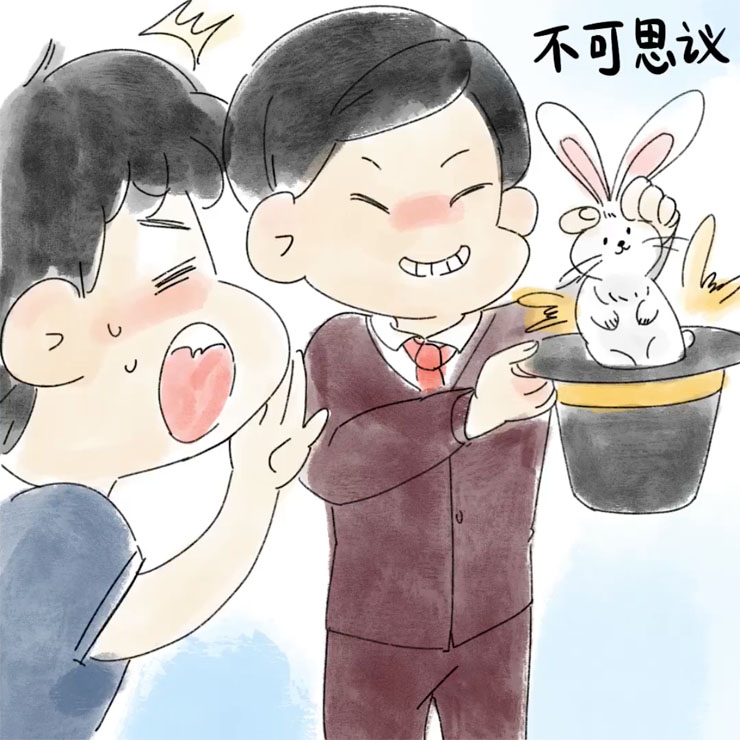
Tips
Note that 不可思议 (bù kě sī yì) ![]() can NOT be used when you are expressing that you are merely confused by or don't understand something someone says. So if someone is speaking to you in Chinese and you don't understand, you can NOT use 不可思议 (bù kě sī yì)
can NOT be used when you are expressing that you are merely confused by or don't understand something someone says. So if someone is speaking to you in Chinese and you don't understand, you can NOT use 不可思议 (bù kě sī yì) ![]() . Instead you can just say:
. Instead you can just say:
bù hǎo yì si wǒ tīng bu dǒng
不好意思,我听不懂!![]()
Sorry, I don't understand!
Examples
You hear that Usain Bolt ran the 100m in 9.58 seconds and you say:
bù kě néng tài bù kě sī yì le
不可能,太不可思议了!![]()
No way, that's incredible!
You're talking about your friend who speaks fluent Chinese after only six months of studying and you say:
tā zhǐ xué le liù ge yuè zhōng wén jiù shuō de zhè me hǎo zhēn shì tài bù kě sī yì le
他只学了6个月,中文就说得这么好,真是太不可思议了!![]()
He speaks so well after only learning Chinese for 6 months, it's really unbelievable!
3
fèi qǐn wàng shí
废寝忘食 
to forget food and rest
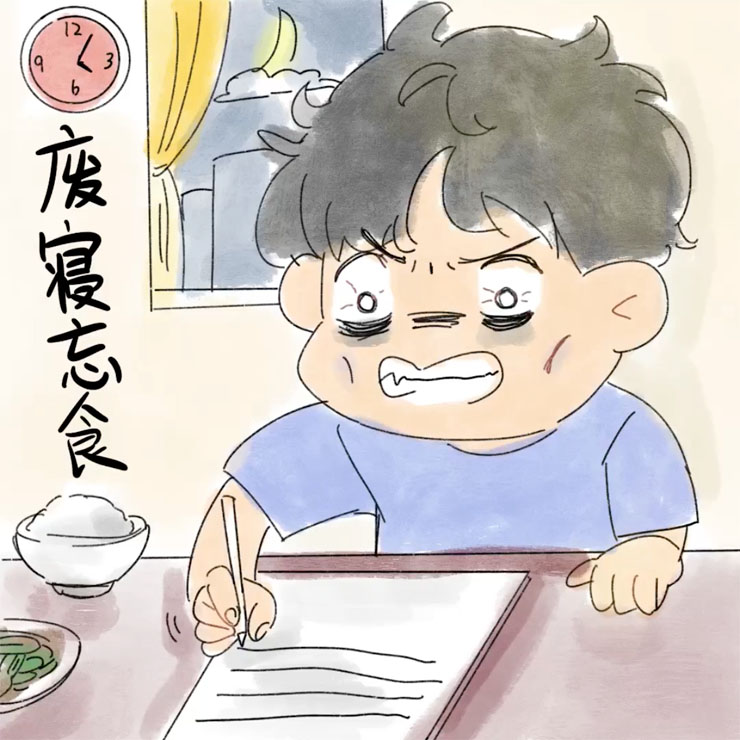
Characters
- 废 (fèi)
 - to give up, to abandon
- to give up, to abandon - 寝 (qǐn)
 - sleep
- sleep - 忘 (wàng)
 - to forget
- to forget - 食 (shí)
 - food
- food
Tips
废寝忘食 (fèi qǐn wàng shí) ![]() isn't used whenever someone has poor sleep and eating habits. Instead, it is used when you want to praise someone for how hard they are working.
isn't used whenever someone has poor sleep and eating habits. Instead, it is used when you want to praise someone for how hard they are working.
Examples
Your child or friend has been studying hard for their final exam and you say:
wèi le zhǔn bèi qī mò kǎo shì zhè jǐ tiàn tā fèi qǐn wàng shí de xué xí
为了准备期末考试,这几天他废寝忘食地学习。![]()
To prepare for the final exam, she's been studying to the point of forgetting to eat or sleep!
You've worked long and late hours at your job this week, so you say:
wǒ zhè zhōu gōng zuò tài máng le jiǎn zhí jiù shì fèi qǐn wàng shí a
我这周工作太忙了,简直就是废寝忘食啊!![]()
I've been super busy with work this week, practically going without food or sleep!
4
dōng zhāng xī wàng
东张西望 
to look this way and that
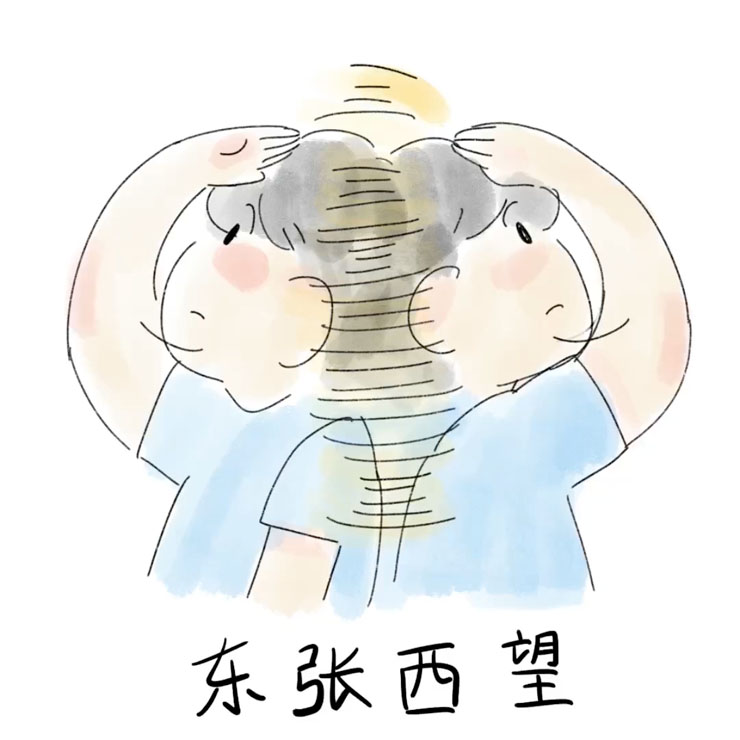
Characters
- 东 (dōng)
 - east
- east - 西 (xī)
 - west
- west - 张望 (zhāng wàng)
 - to look
- to look
Tips
东张西望 (dōng zhāng xī wàng) ![]() has two main uses. It can be used to describe someone who is distracted and looking around aimlessly, or when describing someone who is standing still, looking left and right. Note that 东张西望 (dōng zhāng xī wàng)
has two main uses. It can be used to describe someone who is distracted and looking around aimlessly, or when describing someone who is standing still, looking left and right. Note that 东张西望 (dōng zhāng xī wàng) ![]() can NOT be used when you are walking around in search for something, or scanning the shelves while shopping. It's used when there's a sense of being distracted, lost, or looking for something that you expect to show up.
can NOT be used when you are walking around in search for something, or scanning the shelves while shopping. It's used when there's a sense of being distracted, lost, or looking for something that you expect to show up.
Examples
You're a teacher giving a lesson and you notice one of the students zoning out and looking around the classroom, here you can say:
nǐ yào zhù yì tīng wǒ jiǎng kè bié dōng zhāng xī wàng de
你要注意听我讲课,别东张西望的!![]()
You need to listen to me teach, don't be looking this way and that!
You see someone on the sidewalk who seems lost and you say:
nà ge rén zài nàr dōng zhāng xī wàng de hǎo xiàng shì mí lù le
那个人在那儿东张西望的,好像是迷路了。![]()
That person is over there looking left and right, I think they're lost.
5
bù xiānɡ shànɡ xià
不相上下 
evenly matched, little difference
![]()
Characters
- 不 (bù)
 - not
- not - 相 (xiāng)
 - each other (used when connecting or comparing two things together)
- each other (used when connecting or comparing two things together) - 上 (shàng)
 - up
- up - 下 (xià)
 - down
- down
Tips
不相上下 (bù xiāng shàng xià) ![]() is quite versatile, and can be used to express that two things are indistinguishable in quality, price, distance, weight, etc.
is quite versatile, and can be used to express that two things are indistinguishable in quality, price, distance, weight, etc.
Examples
You are talking about the quality of two similar pieces of clothing and you say:
zhè liǎng jiàn yī fu de zhì liàng chà bu duō bù xiāng shàng xià
这两件衣服的质量差不多,不相上下。![]()
The quality of these two pieces of clothing are pretty much the same, there's little difference.
You are talking about two of your friends that speak Chinese and you say:
tā men liǎng ge rén de zhōng wén shuǐ píng bù xiāng shàng xià
他们两个人的中文水平不相上下。![]()
Their Chinese levels are evenly matched.
We hope you enjoyed learning these 5 成语 (chéng yǔ) ![]() with us today! We're sure you'll find that they really come in handy and that Chinese speakers are super impressed when they hear you use them! They might even say:
with us today! We're sure you'll find that they really come in handy and that Chinese speakers are super impressed when they hear you use them! They might even say:
wà nǐ lián chéng yǔ dōu huì le bù kě sī yì a
哇!你连成语都会了!不可思议啊!![]()
Wow! You even know Chinese idioms! That's incredible!
 TANNER BRADEN | MARCH 23, 2022
TANNER BRADEN | MARCH 23, 2022
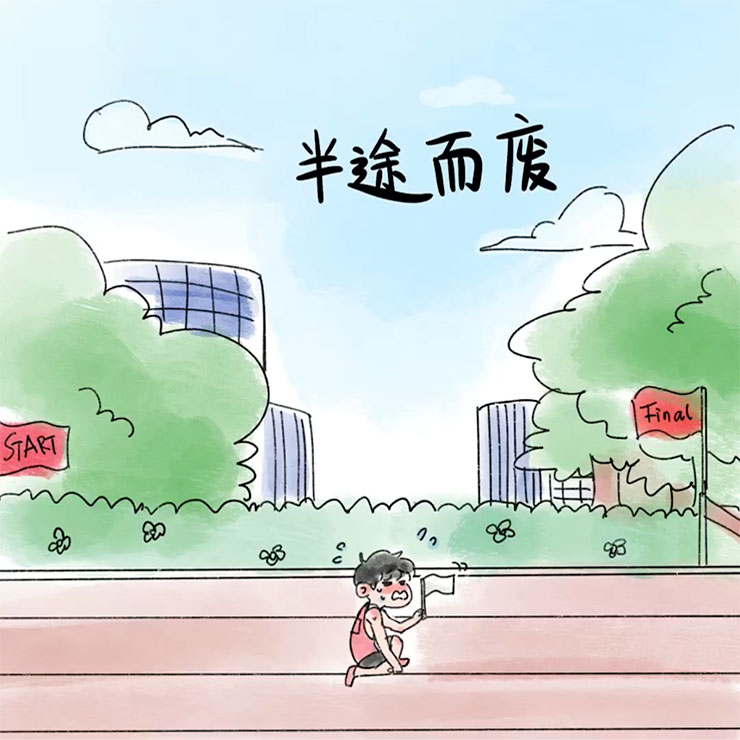
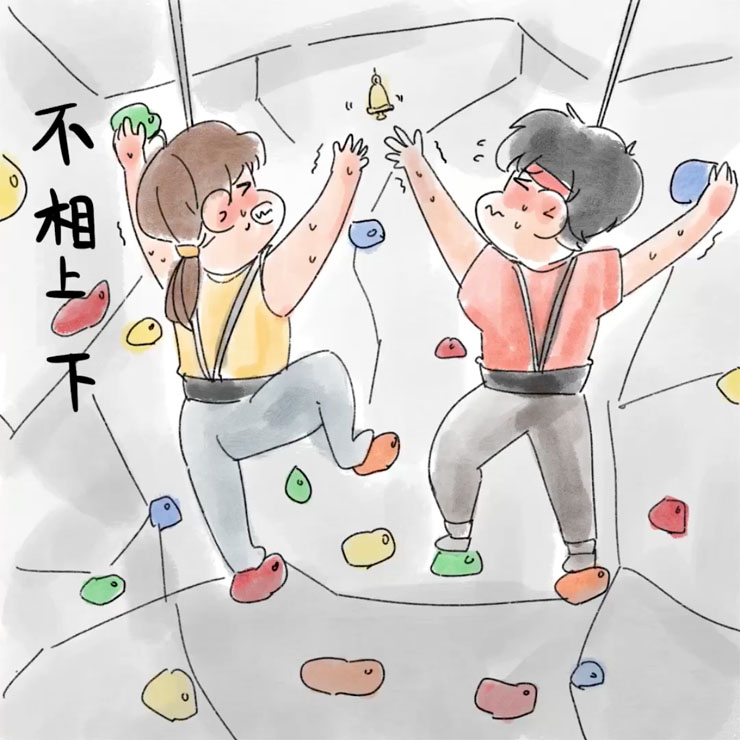

 Chinese Is Easier Than You Think
Chinese Is Easier Than You Think What Is Pinyin?
What Is Pinyin? An Introduction to the Tones
An Introduction to the Tones The 1st and 2nd Tones
The 1st and 2nd Tones Numbers 0-10
Numbers 0-10 🐎 2026 Year of the Horse: Meaning, Culture & Chinese Expressions for Learners
🐎 2026 Year of the Horse: Meaning, Culture & Chinese Expressions for Learners Learn Chinese Pronunciation RIGHT with the (FREE!) Yoyo Chinese Interactive Video & Audio Pinyin Chart
Learn Chinese Pronunciation RIGHT with the (FREE!) Yoyo Chinese Interactive Video & Audio Pinyin Chart [LIVE] How to Read a Chinese Menu 101
[LIVE] How to Read a Chinese Menu 101 [LIVE]: How Chinese People Actually Speak
[LIVE]: How Chinese People Actually Speak Did You Know You Can Use Yoyo Chinese Like a Mobile App?
Did You Know You Can Use Yoyo Chinese Like a Mobile App? Why do non-Chinese people feel that Chinese is difficult to learn?
Why do non-Chinese people feel that Chinese is difficult to learn? An Untold Love Story of Me and Yoyo Chinese
An Untold Love Story of Me and Yoyo Chinese  6 Awesome Authentic Chinese Foods You Need to Know About
6 Awesome Authentic Chinese Foods You Need to Know About Frequently Asked Questions About Chinese
Frequently Asked Questions About Chinese  5 Things Chinese Women Love About Western Men
5 Things Chinese Women Love About Western Men Chinese Insults: How to Name-Call Like a Pro (Part 1)
Chinese Insults: How to Name-Call Like a Pro (Part 1) Tone Pairs - The Mandarin Language Hack You've Been Waiting For
Tone Pairs - The Mandarin Language Hack You've Been Waiting For